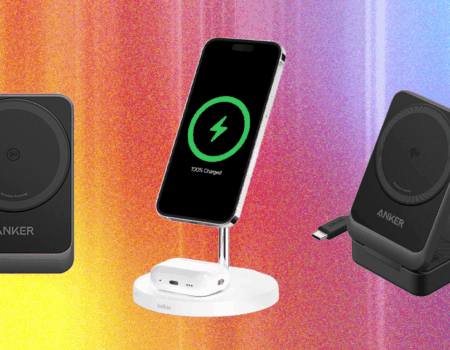Welcome back to TechCrunch Mobility — your central hub for news and insights on the future of transportation. Sign up here for free — just click TechCrunch Mobility!
This week I’m publishing an abbreviated version of the newsletter because of the 4th of July holiday. If you’re driving, flying, or taking the train for the U.S. holiday — which AAA projects 72.2 million people will travel at least 50 miles or more — stay safe out there. The complete newsletter returns next week.
I have one important announcement before I sprinkle in a bit of news. TechCrunch Mobility is moving to the Beehiiv publishing platform in a few weeks. Beehiiv provides lots of cool features — like polls! — to help me better engage with you, the reader. It’s a win for you and me.
The newsletter emails will continue to come from [email protected]. To ensure you don’t miss a single one, please add the above address to your contacts and move it to your primary inbox. This tells your internet service provider that you love TechCrunch and want to see this newsletter.
A little bird

You may recall last week, a New York Times article reported that Uber co-founder and former CEO Travis Kalanick is working with investors to buy the U.S. arm of Chinese autonomous vehicle company Pony AI, and Uber might even help make it happen.
Several little birds tell me Kalanick ally and Uber ATG veteran Eric Meyhofer is involved. We’re poking around to learn more. In the meantime, here is a little history lesson. Meyhofer was with the National Robotics Engineering Center at Carnegie Mellon University before officially moving over to Uber in 2015. He eventually became CEO of Uber ATG, the self-driving unit that was later sold off to Aurora. Meyhofer has been connected to Kalanick’s CloudKitchens enterprise via a restaurant automation and robotics business called Lab37, which was initially reported by the Spoon back in 2023.
Got a tip for us? Email Kirsten Korosec at [email protected] or my Signal at kkorosec.07, Sean O’Kane at [email protected], or Rebecca Bellan at [email protected]. Or check out these instructions to learn how to contact us via encrypted messaging apps or SecureDrop.
Notable reads and other tidbits

Autonomous vehicles
A catchy new term was coined during a recent recording of the Autonocast, the podcast I co-host with Alex Roy and Ed Niedermeyer (full credit goes to Roy). The term is MVAT, or minimum viable autonomy theater — when companies deploy the minimum viable autonomy product sufficient to perpetuate a narrative of progress.
One possible example: Tesla let a Model Y SUV drive roughly 15 miles from its factory to the apartment complex where the car’s new owner lives, completing what CEO Elon Musk called the first “autonomous delivery” of a customer car. If this is a one-off, aka a demonstration, then it’s an MVAT.
This isn’t just to pick on Tesla, by the way. Many other companies have posted flashy videos to showcase the capabilities of their respective automated driving technology. But it was a far more common practice in 2015 — as AVs were shooting up to the top of the hype cycle.
Electric vehicles, batteries, & charging
The second quarter has ended and that means sales and production numbers! While many automakers issue monthly reports, some of the EV companies we monitor only provide quarterly numbers.
The electric Hummer is almost outselling the F-150 Lightning
Lucid sales inch forward as EV maker pushes to ramp Gravity production
Rivian receives the next $1B from Volkswagen as sales struggles continue
Tesla faces second straight year of falling sales after another bad quarter
Meanwhile, Republican legislators passed a reconciliation act that, among other things, unwinds much of the Inflation Reduction Act, including that solar, wind, and clean hydrogen will all lose incentives under the new bill. EV tax credits are also eliminated for new and used electric vehicles and the installation of home EV-charging equipment.
The end of the EV tax credit is already rippling through the industry, including companies that don’t even have an EV yet to sell. Slate Auto, the Jeff Bezos-backed EV startup, was planning to sell a pickup truck for less than $20,000 with the EV tax credit applied. But the language on its website has changed to reflect the bill’s passage.
Also a bit of news from the world of electric RVs and vans … Pebble, the California-based startup we’ve written about before, has started customer deliveries of its flagship all-electric travel trailer. And Grounded, the startup founded by former SpaceX engineers and based in Detroit, delivered its new electric van, called the G3, to its first customer.
Security
The FBI and cybersecurity firms are warning that the prolific hacking group known as Scattered Spider is now targeting airlines and the transportation sector.
Qantas, the Australian airline giant, said it experienced a data breach that compromised the personal information of at least 6 million passengers.








No Comment! Be the first one.